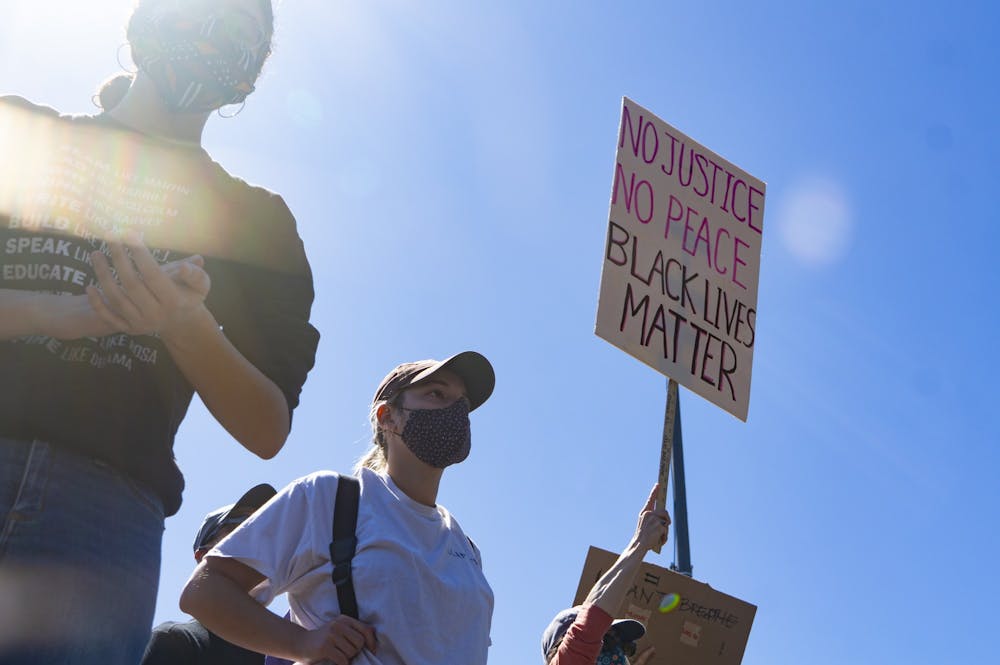Editor's note: Anna Pogarcic is The Daily Tar Heel's incoming editor-in-chief for the 2020-2021 school year.
The Daily Tar Heel, like the majority of the news industry, is facing a reckoning.
The conversations our industry has been having in the mainstream about our history of promoting white supremacy, our failures in supporting journalists of color and the purpose of objectivity are long overdue.
All these faults are present within the DTH as well — like many newsrooms across the country, ours does not look like the communities we serve, and we’ve been hesitant to challenge the values of being objective that journalism school has instilled in us.
And as our reporters have covered protests and grieved, we’ve watched other news outlets write things like the “death” of George Floyd rather than the “killing” of George Floyd. We’ve seen journalists, particularly journalists of color, be punished for holding the industry accountable. We’ve seen outlets be so obsessed with portraying both sides that they run a headline that says “Buildings Matter, Too.”
We need to do better, and as a student newspaper that claims to train the next generation of journalists, that change has to start with us. So, we’re changing our social media and conflict of interest policies to remove barriers that prevented our staffers from expressing themselves, as a recognition that our identities can enrich our reporting.
In the interest of transparency, this was done in consultation with our editing staff for the 2020-2021 school year. I sat down with our managing editor, digital managing editor, director of enterprise and our two new diversity, equity and inclusion officers to do line-by-line edits of our policies. You can read the final product here.
We approached these edits by coming from a place of acknowledgement that journalists do, in fact, have bias — and that’s not a bad thing. What sets reporters apart is that we trust ourselves to acknowledge our biases and tell the truth of a situation, and this can be difficult to do if you deny that you have any biases at all.
We also took issue with the concept of being unbiased in the first place because, in practice, this usually implies that the “blank slate” we tell reporters to strive for is that of a cis, straight, white man. We wished to reject this entirely, because it’s simply not true: we can approach a story from endless angles, and those can often be informed by who we are and what we have experienced.





